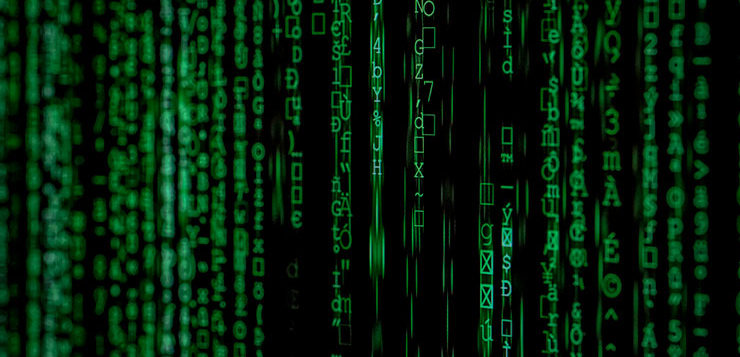DON’T MISS ANYTHING! ONE CLICK TO GET NEW MATILDA DELIVERED DIRECT TO YOUR INBOX, FREE!
The internet is increasingly not a safe place, especially for women, girls, and other marginalised groups. If you thought the cause was men, you’d mostly be right… with one rather startling exception. Nora Lindström from Plan International weighs in on how to fix it.
“Go play a woman’s sport if you can’t handle the attention.”
“Women should be in the kitchen.”
“I wouldn’t mind getting her in the end zone.”
This is just a taste of the comments Australia’s women athletes face on social media. Such reprehensible comments are disturbing, but they’re not surprising.
The World Wide Web, 30 years old this year, is not a friendly place for girls and women. And it seems the more high-profile and vocal they are, the worse the abuse.
A new snapshot social media analysis from Plan International Australia found female athletes face far more negative comments than their male peers, most of which are sexist or sexualized – 23.37% of all negative comments towards female athletes were sexist, referring to gender stereotypes, while 13.59% were sexual in nature. This compares to 0% sexualized comments for male athletes.
Of course, it’s not just women athletes who face abuse online.
Research reveals that female politicians on social media are over three times more likely to experience derogatory comments related to their gender than their male counterparts. Younger women are disproportionately targeted.
Increasingly, this violence is perpetrated not only by humans, but by bots too. Around half of all web traffic today is created by bots.
Like any technology, bots are not neutral. They do what they were programmed to do and some actively uphold inequalities and crowd out alternative views online.
Social bots, essentially fake accounts that imitate real humans, are creating a growing amount of content on social media. Some 15% of all active Twitter accounts are presumed bots, but they punch above their weight – they can post content 24/7. This makes it possible for bot-created content to flood social media, skewing public debate and amplifying hateful rhetoric, violence, and abuse.
Bots are contributing to Instagram’s massive harassment problem as well as spreading anti-Muslim rhetoric and fake news across social media.
They have also attacked progressive action in Australia. A bot was found to be attempting to derail Plan International’s own Free to Be research on street harassment. We were using an online map-based tool, which young women could drop pins on to identify areas where they felt safe and unsafe. This bot had been programmed to drop pins continuously in order to invalidate the results. It failed, but only after our developer partners at CrowdSpot stepped in.
With the web increasingly populated by bots, who creates them is an important question. As the tech sector remains dominated by men, it’s fair to assume they create most bots. This has consequences in terms of what bots are designed to do and what problems they solve – or create.
The founder of the World Wide Web, Sir Tim Berners-Lee, is rightfully worried about the future of the web. In his annual letter this year he highlights harassment as one of the central problems affecting the internet today, contributing to making “many people feel afraid and unsure if the web is really a force for good.” He calls for us to step up “to make sure [the web]is recognised as a human right and built for the public good.”
As we step up, the “we” must include girls and women. For three decades, the World Wide Web has been a playground where the rules – or rather the lack of rules – have been determined by far too few. It’s been a place where hatred and violence have been allowed to thrive, where success has been defined based on number of engagements, not whether those engagements are useful, safe, or even made by a real human.
No more. Being female online should not be a synonym for being abused. We need a web that is created by a diverse group of people, putting equality at the centre of its structures and processes. A web where girls, women, and other marginalised groups can exercise their freedom of expression without harassment. A web that allows female athletes, activists, students and politicians to thrive and that amplifies the voices of those otherwise not heard.
Concrete action is needed to make that happen. The lack of diversity in tech is keeping the internet from reaching its potential for good. We need to create opportunities in the technology sector, so girls and women can be involved in determining how the web operates, and what type of bots are allowed to operate and how.
We also need social media platforms to improve their processes for reporting and dealing with abuse so that girls can safely create content that represents their views and needs.
Facebook, for instance, currently does not differentiate abuse relating to gender, causing much of the abuse suffered by girls and women to go unidentified. Significantly, social media platforms, including Twitter and Instagram, must prioritise user rights and safety.
Plan International is making sure girls and young women have power over their lives and can shape the world around them – online and off. We want girls all over the world to be empowered to get into tech and help us make sure the web is a safe place for us all to exercise our rights – to help us make the World Wide Web a force for good for all.
DON’T MISS ANYTHING! ONE CLICK TO GET NEW MATILDA DELIVERED DIRECT TO YOUR INBOX, FREE!
Donate To New Matilda
New Matilda is a small, independent media outlet. We survive through reader contributions, and never losing a lawsuit. If you got something from this article, giving something back helps us to continue speaking truth to power. Every little bit counts.




